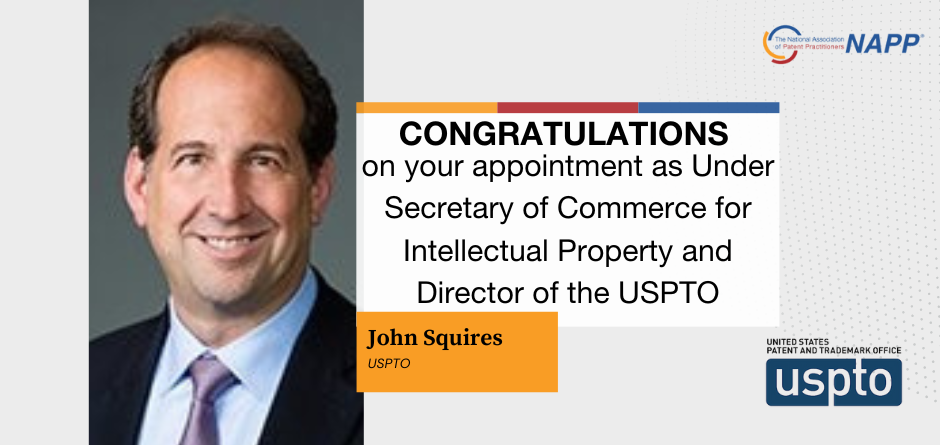New Deputy Director-USPTO
We express our congratulations to John Squires on his appointment as Under Secretary of Commerce for Intellectual Property and Director of the United States Patent and Trademark Office (USPTO). Read the Official Welcome Letter from NAPP


